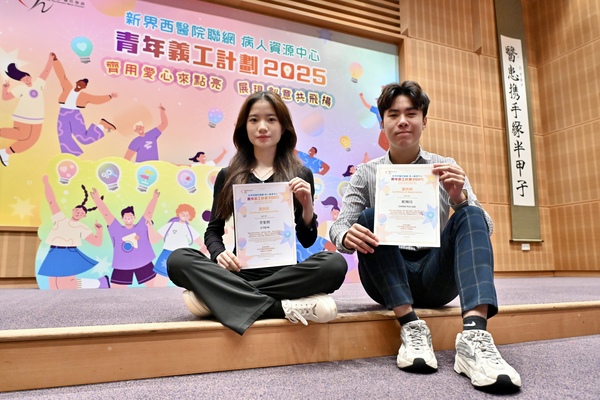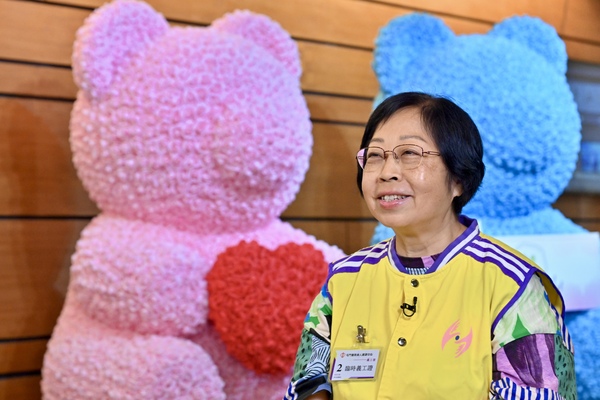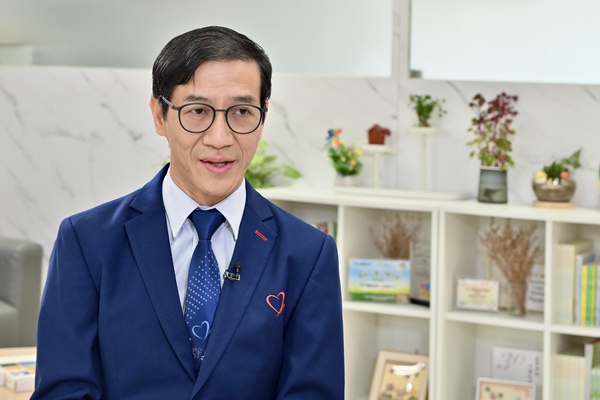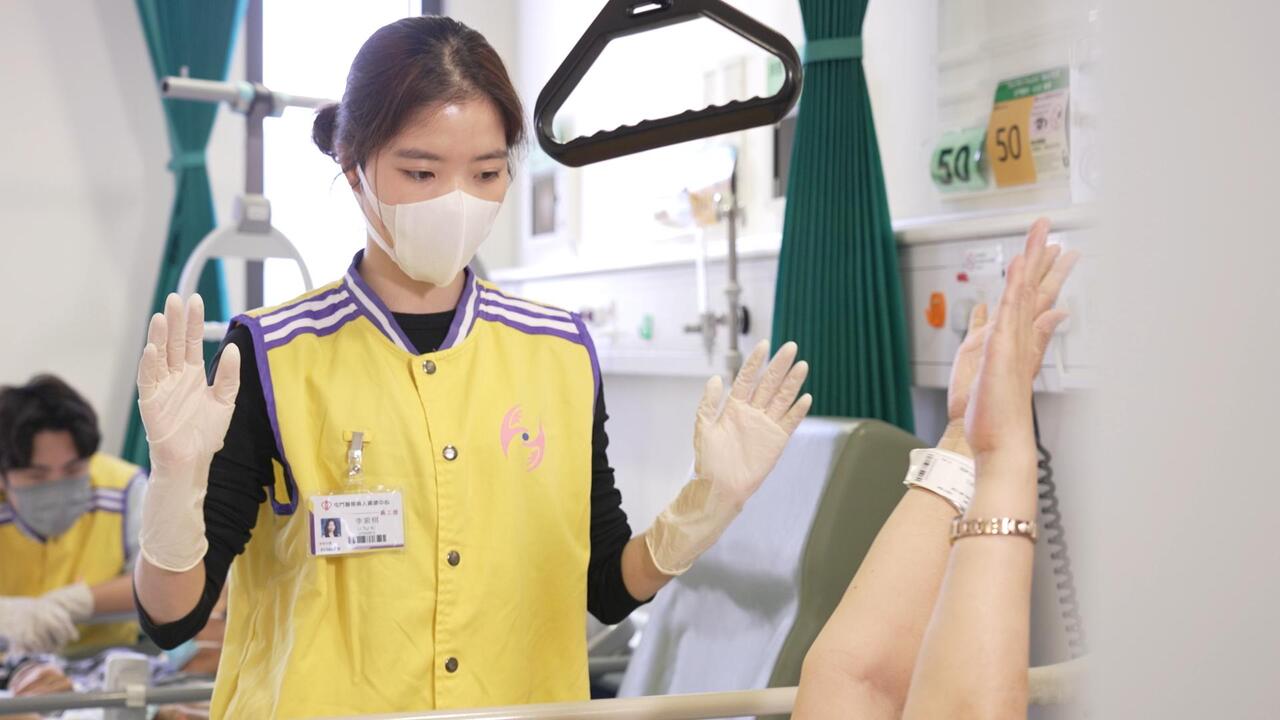Youths relish healthcare experience
This year’s New Territories West Cluster Youth Volunteer Programme, run over the summer by the Hospital Authority, gave participants the chance to take part in a variety of hands-on activities – from visits to hospital kitchens to performing rehabilitation exercises with patients, promoting anti-smoking messages, and helping members of the public use “one-stop electronic kiosks.”
These activities were designed to provide the young volunteers with a broader understanding of Hong Kong’s healthcare system and its operations.
Patient interaction
Carina Li, one of the participants, explained that she chose to join the programme as she is passionate about volunteering and giving back to the community, as well as being interested in the medical field. “I did choose subjects such as biology and chemistry in high school to kind of further my knowledge within this discipline.”
Remarking that the programme helped her to gain a new perspective on the healthcare system overall, instead of thinking only about clinics or hospitals, she said that interacting with patients was the most memorable part of the experience for her.
“To a certain extent, I could resonate with some of the feelings and hardships that they are going through. And I really think that, for example, some patients might not have a lot of family members or friends who went to visit them, so it is really important that we do go in there to talk to them, to chat with them, to see how they are doing.”
Life lessons
Daniel Cheng, another participant, expressed similar sentiments, stressing that the programme had given him useful life lessons. “The most important thing I could learn was empathy – how to truly understand other people’s feelings."
Adding that he had built friendships with other participants and relished the chance to step out of his comfort zone, he highlighted the volunteers’ valuable role as a bridge between patients and hospital staff. “We can reflect to the staff what feedback or suggestions we received from the patients, helping to improve the services to better meet public needs.”
Expert guidance
A unique feature of this year’s programme was the involvement of retired hospital staff as instructors.
Teresa Chan, a retired nurse with 35 years of experience, spoke of her pride in sharing her knowledge with a new generation.
“I am so happy to be a nurse, and I am so proud that I can be a mentor to the young. Through this programme, I hope they can know more about the hospital and the different jobs or occupations that can be taken up in the hospital.
“Maybe in the future they would take up some jobs in the hospital.”
Immersive learning
During the programme, volunteers were given a full-spectrum view of hospital operations through visits to units as diverse as the kitchens, the mortuary, the accident and emergency department, and the pharmacy.
They also performed various worthwhile tasks, such as promoting the Hospital Authority’s “HA Go” mobile app, assisting patients in using the one-stop kiosks, and accompanying them during treatments. These activities not only supported hospital operations but also deepened the volunteers’ understanding of the healthcare system.
Hospital Authority New Territories West Cluster Service Director (Primary & Community Health Care) Dr Ng Yeung-shing outlined that this year’s programme also featured some novel elements, including an introduction to advanced medical technologies such as “magnetic resonance-guided focused ultrasound” at Tuen Mun Hospital’s Neuroscience Centre.
The volunteers also met hospital staff who had participated in disaster relief efforts in Myanmar earlier this year, and gained from them a broader perspective on how healthcare professionals can apply their skills beyond hospital settings.
Record participation
Nearly 300 youngsters participated in this year’s programme – a record number. Dr Ng expressed hope that the volunteers will continue to be involved in the authority’s work and praised them for their significant contributions.
“Our youth volunteers have received positive feedback from departments. They have been instrumental in helping patients to use kiosk machines and the ‘HA Go’ mobile app, and direct the patients to the waiting area.
“I think it is a win-win-win situation – patients receive assistance, staff gain support, and youth volunteers acquire invaluable experiences for personal growth.”



